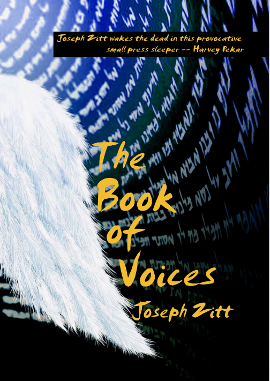I hadn’t realized, when I started this project, how many names in the Bible actually were shared by several people. King David, Judah, and Absalom all had daughters named Tamar. David not only had connections to the prophet Nathan but had a son of that name. And David also had a son named Daniel, though I had only noticed the name before in the story of the much later prophet.
When the random process selected Nathan as the topic of this story, I at first thought it meant the prophet, but the verse clearly related to David’s son. The one bit of legend that I was able to find about him came from Christian scripture: the Gospel of Luke (though not the Gospel of Matthew) identifies Nathan as an ancestor of Jesus. Taking this as a general pointer to the eventual Messiah being descended through Nathan, I was off and running. And noticing that his three immediate descendants all happened to have names beginning with the letter “M” (or in Hebrew, “Mem”), suggested a pattern to their naming.
My immediate model for him was my own great-uncle Nathan, who I only knew vaguely, but whom I remember as being quiet and one of the many teachers in my family. I guessed that if the Biblical Nathan was to be one of the only sons of David to survive, he might well have gotten out of the havoc and limelight of the family and settled elsewhere.
And I started to imagine a connection of the two Daniels, and wonder if they might be, in some magical way, the same character, who becomes more prominent later in the book. His depiction as the end of this story also owes a bit to a song by Elton John and Bernie Taupin. (It might help to know that the Biblical place name “Sepharad” was later taken to mean Spain.)
The romance between Nathan and Aviva fits one of my own romantic dreams. I’ve been more familiar with the tempestuous, rapidly igniting and explosively ending romances than with the long-term, slow-building connections such as they made, the gradual realization that two people fit together well and grow to have what it seems to take to make a relationship last a lifetime. I’ve known people who, rather than having a dramatic moment where one proposes marriage to the other, have at some point realized that they had been working from a tacit assumption that they would spend their lives together without really knowing exactly how and when they decided it. And those relationships have, indeed, gone on for as many decades as I have known them.
Questions
Have you known romantic love? If not, do you believe that such a thing exists? If so. have you experienced “conflagrations of desire” or the slow-growing realization of life-partnership that Nathan and Aviva had? Was your experience elsewhere along the spectrum between the two extremes, or something else entirely? How did it work out for you?
Looking back on your own experience of love, is there anything that you wish that you had done differently? What of the experience do you cherish? What do you regret?


Recent Comments